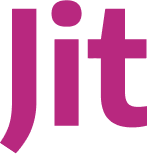About Polymorph
Founded in 2008, Polymorph is a custom software development company focused on providing value to organizations that are in the process of scaling. Polymorph differentiates itself with its approach to building software, a single-minded focus on building the right software that builds real value to create exponential growth.
The Challenge
Polymorph has undergone a technological transformation, transitioning from its initial focus on native iOS, native Android, and varied backends in different environments. They have embraced cutting-edge technologies like Flutter, Angular, and AWS backends. Polymorph’s decision to utilize AWS for their user interface-centric systems stems from its ability to eliminate approximately 90% of support concerns. Heinrich Venter, CTO at Polymorph, emphasized AWS’s reliability, stating, “If you have an app that sends out messages to florists, it will only go down if meteors hit two world cities simultaneously. So it’s not something we’ll worry about at all.”
While AWS addresses numerous architectural and reliability challenges, Polymorph acknowledges certain limitations. Heinrich notes, “One challenge is the restrictions imposed by AWS. Deploying an application on AWS, while straightforward, has its limitations. Properly structuring infrastructure as code is crucial to avoiding these limitations.” Past experiences taught Polymorph the importance of this lesson, prompting adjustments to their approach. The initial oversight led to substantial time investments in deploying what should have been a straightforward process.
Polymorph recognized the need for deeper system monitoring and debugging as challenges surfaced. In attempting to identify issues, the team initially relied on CloudWatch to inspect logs for potential failures. However, this manual approach proved time-consuming. To simplify the process, they implemented CloudWatch alarms, only to realize the high costs in AWS expenses and developer time. The labor-intensive nature of coding alarms, interpreting their meaning, and the need to delve into logs failed to provide the anticipated time savings. And, because Polymorph builds for multiple customers, it is difficult to find a one-size-fits-all solution as each customer has a different skill set. After grappling with these issues, Polymorph sought a more comprehensive solution to enhance their monitoring and debugging capabilities and extend that offering to their customers.
The Solution
Polymorph found that Lumigo addresses these problems comprehensively through various solutions. Regarding development time, minimal effort is required to set up Lumigo infrastructure, as Lumigo’s 1-Click OpenTelemetry feature streamlines the entire process. The Lumigo stack is seamlessly deployed and automatically traces all necessary lambdas, ensuring comprehensive troubleshooting.
The impact on Polymorph’s clients is noteworthy as they save significant time that would otherwise be spent setting up alarms. This time-saving translates into more focus on building features instead of deploying and managing monitoring infrastructure. With Lumigo, Polymorph and their clients gain access to production troubleshooting, eliminating the need for developers to decipher CloudWatch alarms and delve into logs when issues arise. The Lumigo dashboard provides immediate insights into potential problems, and users can utilize alerting channels independently, reducing reliance on support.
As Caleb Linden, Senior Software Engineer at Polymorph, put it, “One of the most compelling aspects of Lumigo, from my perspective, is its accessibility to clients with varying levels of technical understanding. Lumigo simplifies complex information into visually digestible formats, making it easy for clients to interpret and respond. The alerting feature is particularly impactful; we set up alerts for Slack or email and integrate them into the production system. This simplifies the support process, providing confidence during handovers as we anticipate that alerts and alarms will keep us informed.”
Lumigo has effectively become a one-size-fits-all platform able to adapt and make sense of these disparate environments. Setting up Lumigo for clients is as simple as an initial onboarding process, empowering them to manage their alerts and troubleshoot potential issues. With Lumigo, Polymorph’s clients have the autonomy to analyze the data independently, facilitating swift issue resolution. When anomalies arise, such as a sudden spike from 10 to 100 transactions or 80 people experiencing no transactions, they can promptly discern something is amiss. For example, a 100% user fallout at the payment initiation stage signals a potential issue with the third party. These alerts prompt Polymorph’s clients to reach out, informing them that something is awry.
When investigating these incidents, the process of pinpointing the root cause is significantly streamlined by Lumigo. This has generally led Polymorph’s clients to be capable of interpreting alerts, which has reduced the number of customer issues Polymorph has to handle directly. Polymorph’s clients now only notify them when a deeper investigation is required. Lumigo’s intuitive dashboards further facilitate their clients’ understanding and contribute significantly to effective troubleshooting.
Heinrich noted, “The beauty of Lumigo lies in its flexibility, providing the necessary insights without needing to inspect logs manually. This capability significantly reduces the time spent on issue investigation, offering a more streamlined and efficient resolution process.” This time savings can then be spent providing additional value to their customers.
About Lumigo
Lumigo is a troubleshooting and observability platform that autonomously deploys OpenTelemetry in under 5 minutes with a single click, automatically capturing and contextualizing all of the data developers need to troubleshoot microservice issues in production. Lumigo is the only distributed tracing platform that enriches traces with complete in-context request and response payloads and correlates them to the relevant logs and metrics, enabling developers to resolve issues up to 80% faster.











